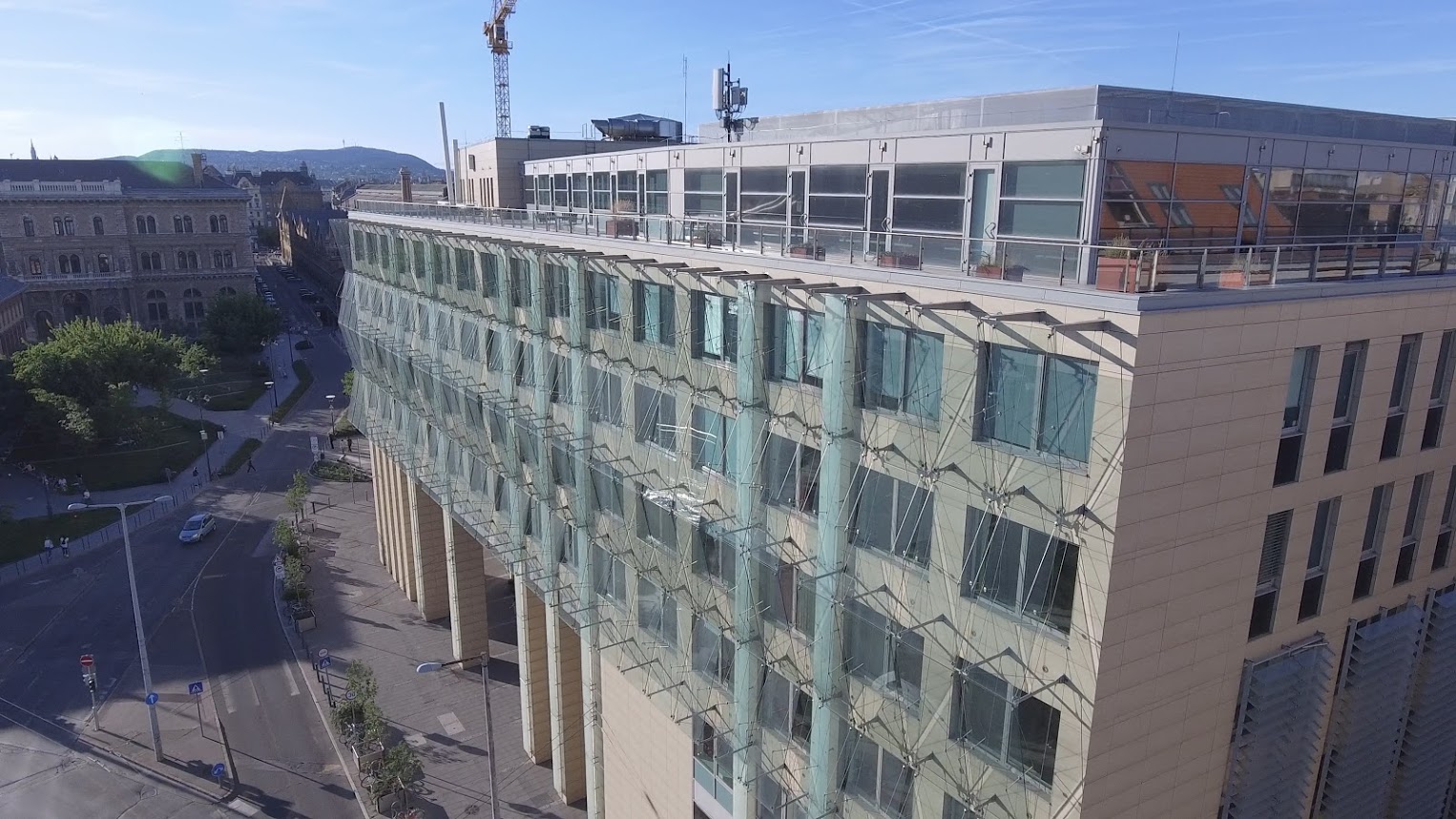Sixty percent more salary as a senior manager? – The Corvinus Executive MBA Program to be renewed
Practicality, interdisciplinary knowledge and senior management skills are essential to climb higher on the workplace career ladder, therefore it is not surprising that the average salary of Executive MBA graduates increases by 35 to 60 percent after the program. The postgraduate programs – including the Executive MBA – are being renewed at Corvinus University. We asked program manager Dr. Andrea Toarniczky about the changes, the AMBA accreditation and the future directions.
- For whom is the Executive MBA recommended?
- What are the most important changes?
- Which core courses and specialisations are covered during the two years?
- What are the cornerstones and key characteristics of the program?
- What value is provided to the program by the recently granted AMBA accreditation?
Who should consider applying for the postgraduate program?
‘The Corvinus Executive MBA may be relevant for three target groups’ said Dr. Andrea
Toarniczky, an associate professor the Institute of Management of Corvinus University of
Budapest. ‘For the first group the Executive MBA is a career expediting program. This group
includes talented young people who have exceptional roles in their respective organisations.
The Executive MBA is a certain way to a senior management career
The second group includes SMEs, i.e. small and medium enterprises. In case of SMEs, not only
the MBA participant may profit from the knowledge acquired in course of the program but ‘in case
of a possible generational change and with the help of the skills learned during the program, the
younger generation urging internationalisation and large-scale change may set the enterprise on
an acceleration track as well.’
The third target group includes those startuppers ‘who grow out the company fast’.
Thus the
renewing Executive MBA provides development opportunity not only to the executives of already
well-functioning enterprises with extensive relationship networks but it also provides a general
leadership management program which may also facilitate the internationalisation startups.
According to Dr. Andrea Toarniczky, the executives arriving to Corvinus start the two-year MBA
program with great purpose and with exact expectations.
What specific changes were carried out, and what makes the Executive MBA different from
a traditional, regional MBA?
‘One of the additional value of the Corvinus-MSM-SEED MBA program is the dual diploma which
may be acquired after 2 years. One diploma is awarded by Corvinus University, while the other is
awarded by the Maastricht School of Management’ – said Dr. Andrea Toarniczky. Students
complete the core courses in Budapest, while the specialisation takes place in Maastricht.
(picture: Maastricht School of Management; source)
‘In addition, the internationalisation of the lecturer bases and the more emphasised integration of
the leadership development line in the specialisation courses are also important changes’ – said
the associate professor. ‘There in an integrative subject in all semesters, which makes the
students face business problems to be worked out in practice. During one of these integrative
subjects, the students have to work on a project basis while analysing the change, thereby
improving their senior manager approach and their critical senior management skills.’
The Executive MBA program of Corvinus provides customised individual development
opportunity as well
‘At the beginning of the program all students define a development objective for themselves, the
process of which has to be recorded in the individual study portfolio. With the help of the portfolio
and the mentor all participants proceed on a curve which facilitates them in developing the
realistic executive self image and in writing the thesis.’
What are the key characteristics of the program?
‘Regional relevance, practicality, experience-based education, academic quality and
interdisciplinarity. These are the most important characteristics of the program and also the
objectives of the changes’ – said Dr. Andrea Toarniczky about the cornerstones of the MBA.
One of the most important objectives of the MBA program is becoming a leader in the region
through quality and continuous development, just as it is important for the University to be a
regionally relevant institution.
Practicality is noticeable in the structure of the program, the teamwork, as well as in the
development of the leadership skills
‘Participants want to feel the effect of the program on their careers right away. If they go back to
their workplaces, they want to apply what they had learned. We support our students in this effort
to the fullest. In this the participants may reflect not only on their own experience but they may
learn a lot from each other, too.- highlighted Dr. Andrea Toarnicky regarding the importance of
study groups and gaining experience.
Meanwhile, interdisciplinarity is built in the program with the help of expert lecturers from various
field of science, therefore, by the end of the second year the students will have better insight into
the different industries.
What value is provided to the program by the AMBA accreditation?
‘The AMBA accreditation increases the value of the program on the international level, since this
is a sign of quality which can be interpreted globally as well, and which makes the MBA diploma
obtained easy to sell – said Andrea Toarniczky.
The goal is to obtain all three accreditations. The AMBA accreditation is not only a sign of quality
for Corvinus but it can also be understood as a development feedback. Dr. Andrea Toarniczky
described the effect of the accreditation as follows: ‘the accreditation affected the development
process as well. It put the important of topicality, the issue of sustainability and corporate
responsibility even more in focus. The fact that the Corvinus MBA obtained the AMBA
accreditation represents not only an acknowledgement but it also sets a new objective for us: by
establishing the focal points, we have to guarantee the participants a consistent development
process to the.’
Original article: Közgazdász Online
